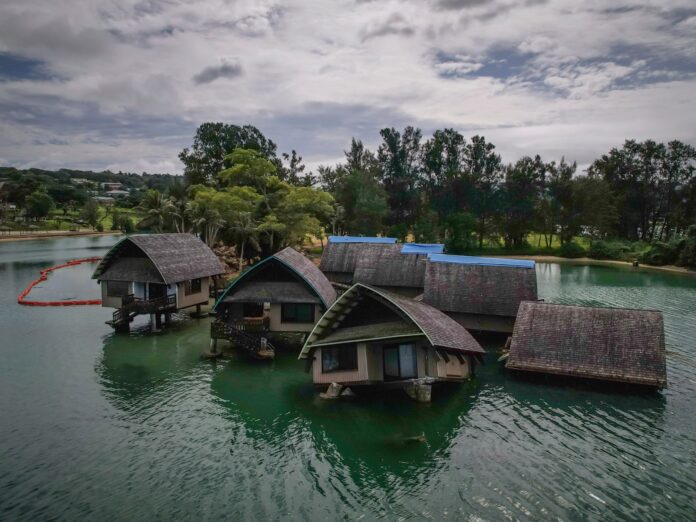When John Warmington first began diving the reefs outside his home in Vanuatu’s Havannah Harbour 10 years ago, the coral rose like a sunken forest – tall stands of staghorns branched into yellow antlers, plate corals layered like canopies, and clouds of darting fish wove through the labyrinth.
“We used to know every inch of that reef,” he said. “It was like a friend.”
Now, it is unrecognisable.
After Cyclone Pam battered the reef in 2015, sediment from inland rivers smothered the coral beds. Crown-of-thorns starfish swept in and devoured the recovering polyps.
Back-to-back cyclones in 2023 crushed what remained. Then, in December 2024, a magnitude 7.3 earthquake shook the seabed.
What remains is a coral graveyard – bleached rubble scattered across the seabed, habitats collapsed, and life vanished.
“We have come out of the water in tears,” said Warmington, who has logged thousands of dives on this single reef. “We just see heartbreak.”
That heartbreak is becoming more common across this Pacific island nation, where intensifying cyclones, rising seas, and saltwater intrusion are reshaping coastlines and threatening daily life.
Since 1993, sea levels around Vanuatu’s shores have risen by about 6mm (0.24in) per year – significantly faster than the global average – and in some areas, tectonic activity has doubled that rate.
On Wednesday, Vanuatu will have its day in the world’s highest court. The International Court of Justice (ICJ) will issue an advisory opinion on what legal obligations nations have to address climate change, and what consequences they may face if they do not.
The case, led by Vanuatu and backed by more than 130 countries, is seen as a potential turning point in international climate law.
The opinion will not be legally binding, but could help shape future efforts to hold major emitters accountable, and secure the funding and action small island nations need to adapt or survive.
It comes after decades of frustration for Pacific nations that have watched their homelands disappear.
In Tuvalu, where the average elevation is just two metres (6.6ft), more than a third of the population has applied for a climate migration visa to Australia.
By 2100, much of the country is projected to be under water at high tide.
In Nauru, the government has begun selling passports to wealthy foreigners – offering visa-free access to dozens of countries – in a bid to generate revenue for possible relocation efforts.
Vanuatu has already sought opinions from other international courts, and is pushing for the recognition of ecocide – the destruction of the environment – as a crime under the International Criminal Court.
Not all of these effects can be attributed solely to climate change, said Christina Shaw, chief executive of the Vanuatu Environmental Science Society.
Coastal development, tectonic subsidence, volcanic eruptions, deforestation, and pollution are also contributing to ecosystem decline.

“Vanuatu’s environment is quite fragile by its very nature in that it is young with narrow reefs, has small amounts of topsoil, and is impacted regularly by natural disasters,” she said. “But we do have to think about the other human impacts on our environment as well.”
The damage is not limited to homes, gardens, and reefs – it is reaching into places once thought to be untouchable.
On the island of Pele, village chief Amos Kalsont sits at his brother’s grave as waves lap against broken headstones half-buried in sand.
At high tide, both his brother’s and father’s graves sit just a few arm’s lengths from the sea. Some homes and gardens have already been moved inland, and saltwater intrusion has tainted the community’s primary drinking water source.
Now, the community is considering relocating the entire village – but that would mean leaving the land their grandparents cleared by hand.
Many in Vanuatu remain committed to building something stronger and hope the rest of the world will support them.
Back in Havannah Harbour, John Warmington still dives the reef he considers part of his family. While much of it has gone, he and his wife Sandy have begun replanting coral fragments in the hope of restoring what remains.


